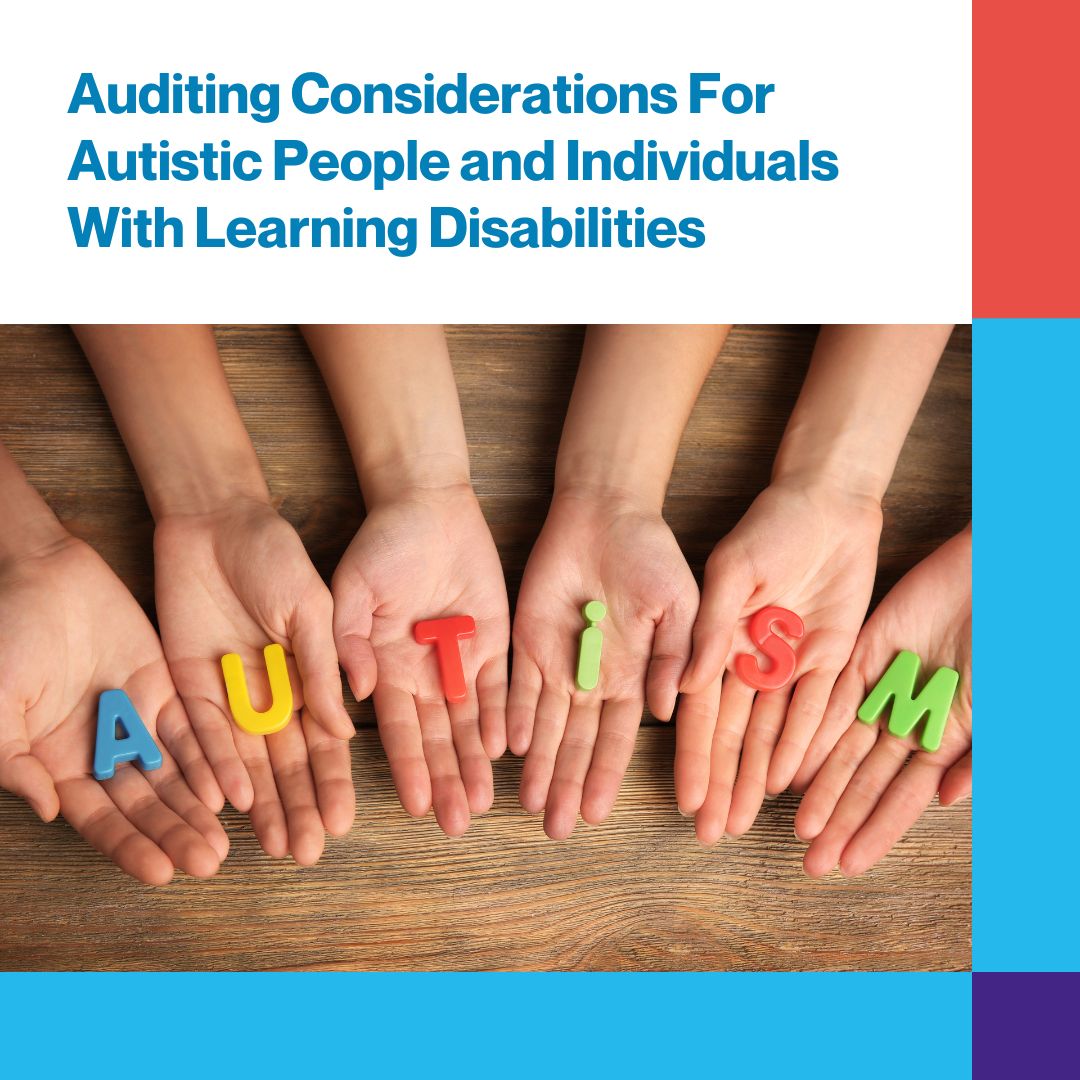Supporting Autistic People and Individuals with Learning Disabilities: Meeting CQC Standards
The Care Quality Commission (CQC) is dedicated to ensuring that autistic people and individuals with learning disabilities receive the highest standards of care. This commitment is grounded in the principles of providing the Right Support, Right Care, and Right Culture, empowering individuals to lead confident and inclusive lives.
For care providers, aligning with these principles is essential for delivering high-quality, person-centred care and maintaining compliance with regulatory requirements.
Understanding the CQC’s Principles
The CQC’s Right Support, Right Care, and Right Culture framework outlines the key elements of high-quality care:
1. Right Support
This principle focuses on enabling individuals to:
- Have choice, control, and independence.
- Access local communities and opportunities for personal growth.
- Receive tailored support suited to their unique needs and preferences.
Providers must ensure their services empower individuals to live ordinary, fulfilling lives while fostering an environment of independence and self-determination.
2. Right Care
Care must be person-centred, respectful, and protective of individuals’ privacy and dignity. The emphasis is on delivering care that:
- Upholds human rights.
- Values compassion and respect.
- Provides a safe and inclusive environment.
3. Right Culture
The organisational culture of a care provider must support inclusion, respect, and empowerment. This includes:
- Leadership that prioritises person-centred values.
- Teams that reflect behaviours and attitudes aligned with these principles.
- A shared commitment to fostering a supportive environment for individuals with autism and learning disabilities.
The Importance of Continuous Improvement
Achieving excellence in care requires more than meeting compliance standards—it involves an ongoing commitment to improvement. Regular self-assessment, gathering feedback from staff and clients, and acting on insights are crucial to maintaining high standards of care. Continuous improvement helps providers adapt to the evolving needs of individuals and align with best practices in care delivery.
Inclusivity in Action: Addressing Communication Needs
For autistic individuals and those with learning disabilities, effective communication is often a significant aspect of receiving appropriate care. Ensuring inclusivity in communication helps providers:
- Overcome language barriers.
- Support individuals in participating in decision-making.
- Respect each person’s voice and preferences.
Inclusive practices, such as offering information in different languages or formats, align with the CQC’s focus on equality and dignity. These efforts create an environment where everyone feels valued and supported.
How MOA Supports Providers Working with Autistic Clients and Those with Learning Disabilities
MOA Benchmarking offers tools and resources specifically designed to support care providers in meeting the needs of autistic people and individuals with learning disabilities. These include:
- Comprehensive Self-Assessment Tools: MOA enables providers to evaluate how their services align with the principles of Right Support, Right Care, and Right Culture. This helps identify strengths and areas for improvement, ensuring that services remain person-centred and inclusive.
- Feedback Mechanisms: Regular surveys for staff, residents, and clients help providers gather insights into the lived experiences of individuals. This feedback ensures that services adapt to meet changing needs while addressing any gaps in care.
- Multilingual Support: MOA supports translation into the top 10 spoken languages, making care more accessible for individuals who speak languages other than English. For autistic individuals and those with learning disabilities, this feature can significantly enhance communication and understanding.
- Actionable Insights: By transforming data from assessments and surveys into practical recommendations, MOA helps providers prioritise improvements that make the greatest positive impact on individuals’ lives.
- Continuous Improvement Framework: MOA’s Plan for Continuous Improvement (PCI) encourages providers to go beyond compliance, fostering a culture of learning and development within their organisations.
By offering these tools and frameworks, MOA supports providers in delivering care that empowers individuals to live fulfilling and independent lives, while helping organisations stay aligned with CQC standards.
Conclusion
Meeting the CQC’s standards for autistic people and individuals with learning disabilities requires a proactive and inclusive approach. By focusing on the principles of Right Support, Right Care, and Right Culture, care providers can ensure that their services uphold the dignity, rights, and independence of those they support. Tools like MOA Benchmarking can play a valuable role in helping providers assess their practices, gather feedback, and commit to continuous improvement.
Delivering high-quality, person-centred care is a shared goal—and one that makes a profound difference in the lives of individuals and their families. Arrange a free demo with one of our team to learn more. https://moabenchmarking.co.uk/contact-us/
For a closer look at CQC’s official guidance on “Right Support, Right Care, Right Culture” to care for those with autism or learning disablilities – Right Support, Right Care, Right Culture – Care Quality Commission (CQC)
Ayesha Sultana, MOA Benchmarking Clinical Quality Lead

